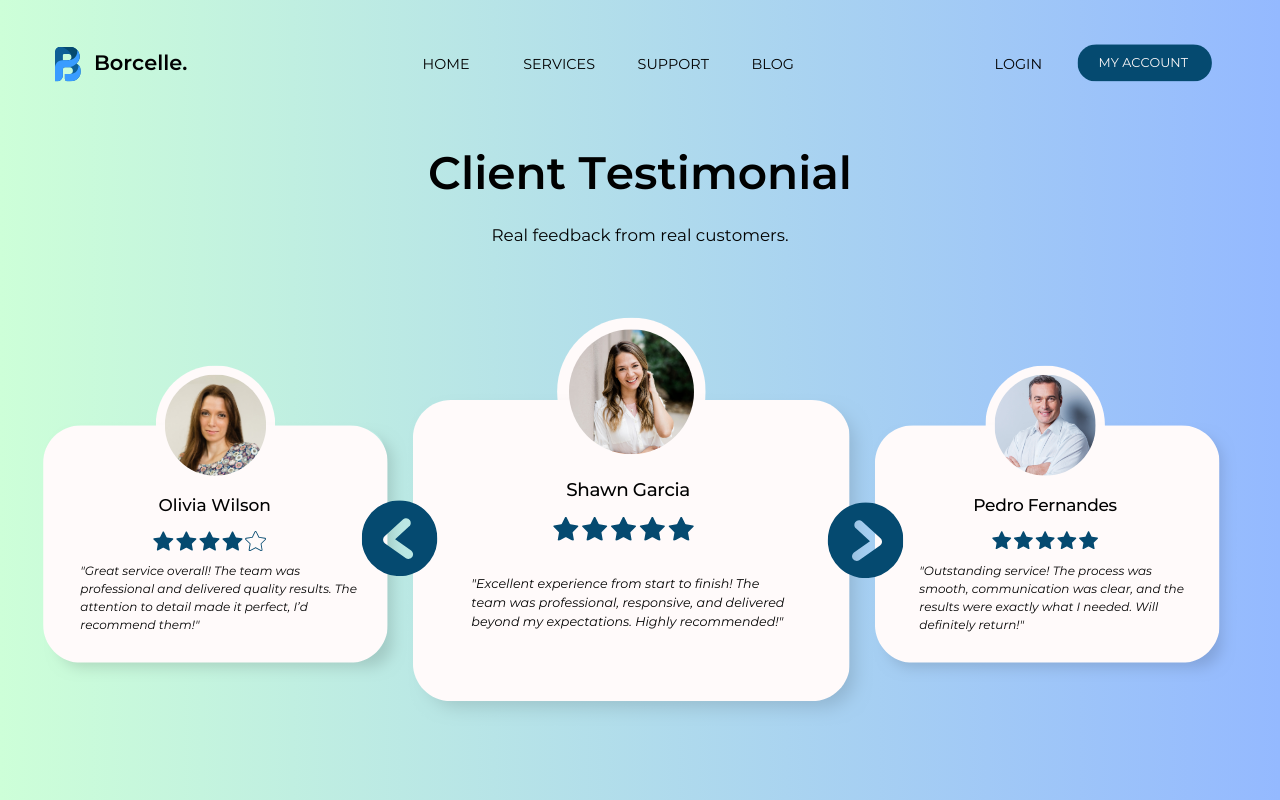The Power of Client Testimonials in Marketing: Build Trust and Boost Sales
Building trust is essential in marketing. One of the most effective ways to achieve this is through client testimonials marketing. Customer feedback adds credibility, reassures potential buyers, and can significantly influence purchasing decisions.
Let's explore the power of client testimonials and how we can seamlessly integrate them into your overall marketing efforts.
Why Client Testimonials Matter
Customer testimonials are a powerful way to build trust and help potential customers feel confident in their decisions.
Real endorsements from happy customers reinforce a brand’s credibility. Well-placed testimonials can naturally guide purchasing decisions by addressing doubts and highlighting positive experiences.
Beyond increasing sales, testimonials strengthen customer relationships. Seeing real, positive feedback reassures potential buyers and encourages repeat business.
By integrating customer testimonials into your marketing strategy, you can make testimonials a natural and persuasive part of the customer journey.
Types of Testimonials
Customer testimonials come in various formats, each serving a unique role in marketing. Choosing the right type depends on your audience and where you plan to showcase them.
Quote Testimonials
These are short, written endorsements from satisfied customers. They are easy to collect and can be placed on websites, landing pages, and social media posts to establish credibility quickly.
Video Testimonials
Video testimonials authentically showcase customer experiences by conveying emotion and real-life success stories.
Social Media Shout-outs & User-Generated Content
When satisfied customers share positive experiences through posts, comments, or tagged content, it acts as organic word-of-mouth marketing. Encouraging user-generated content builds brand trust and engagement.
Case Studies
For a more detailed approach, case studies highlight how a product or service solved a specific problem for a customer. They work well for businesses looking to build authority and demonstrate tangible results.
Star Ratings & Online Reviews for Small Businesses
Public customer reviews on platforms like Google, Yelp, and Facebook are essential for building online credibility. Responding to reviews—both positive and negative—shows engagement and commitment to customer satisfaction.
Influencer & Authority Endorsements
When industry experts or influencers vouch for a brand, it boosts credibility and expands audience reach. influencer endorsement attracts potential customers but also reassures existing ones. These endorsements are effective for niche industries or high-ticket products, where trust and reputation are crucial in one's purchasing decisions.
How to Gather Effective Client Testimonials
Collecting valuable customer testimonials starts with the right approach. Businesses need to make it easy, timely, and rewarding for customers to share their experiences.
Ask at the Right Time
The best time to request a testimonial is after a successful purchase, a completed project, or a positive customer interaction. Customers are more likely to share positive testimonials when their experience is fresh.
Make It Easy
Provide a short feedback form, survey, or quick interview to simplify the process. Offering multiple formats—such as written responses, video testimonials, or social media shout-outs—ensures customers can share testimonials in a way that suits them.
Offer an Incentive
Offering small rewards, such as discounts or social media features boosts participation. However, ensure that testimonials remain honest and genuine as this method may lead to fake reviews from individuals looking to claim the incentive.
Leverage Online Reviews for Small Businesses
Encourage satisfied customers to leave reviews on platforms like Google, Yelp, and Facebook. Publicly responding to both positive and negative reviews shows engagement and builds trust with potential customers.
Use Social Media Strategy
Social media is great for organic testimonials. Engage with tagged content from happy customers, highlight positive reviews, and run social media campaigns. User-generated content and community discussions can further boost your brand's credibility and conversion rate.
Where to Feature Client Testimonials for Maximum Impact
Website Landing Pages
Testimonials on your homepage and service pages build credibility by immediately showcasing satisfied customer experiences.
Social Media Strategy
Sharing customer testimonials on Instagram, Facebook, LinkedIn, and Twitter increases engagement and spreads positive word-of-mouth.
Email Marketing Campaigns
Including testimonials in newsletters builds trust with subscribers and potential customers.
Google My Business & Review Platforms
Encouraging happy customers to leave reviews improves local SEO and online reputation. This improves search visibility and signals to search engines and potential customers that you are engaged and value customer feedback.
Product Pages & Checkout Process
Displaying real customer reviews at key decision-making points, like product pages and checkout, helps ease last-minute hesitations and increase conversions.
Customer testimonials are a powerful way to establish trust and build confidence in your products or services. Real customer experiences provide valuable insights for potential buyers, helping them make informed decisions more easily.
If you haven’t already, now is a great time to reach out to happy customers for feedback.
At New Level Digital, we help businesses turn client testimonials into powerful marketing assets. By optimizing testimonials for local SEO, we boost your brand’s visibility and credibility. Let’s strengthen your brand with powerful testimonials!


